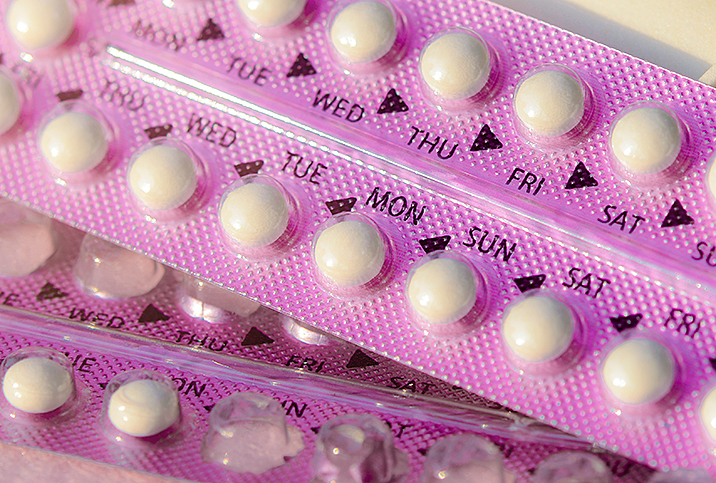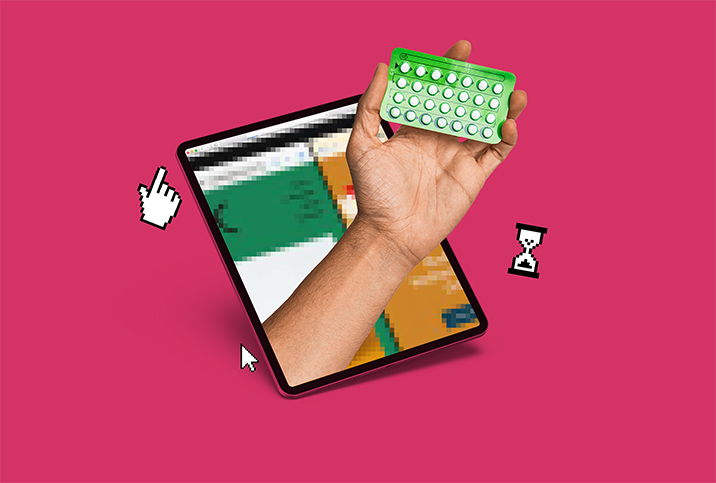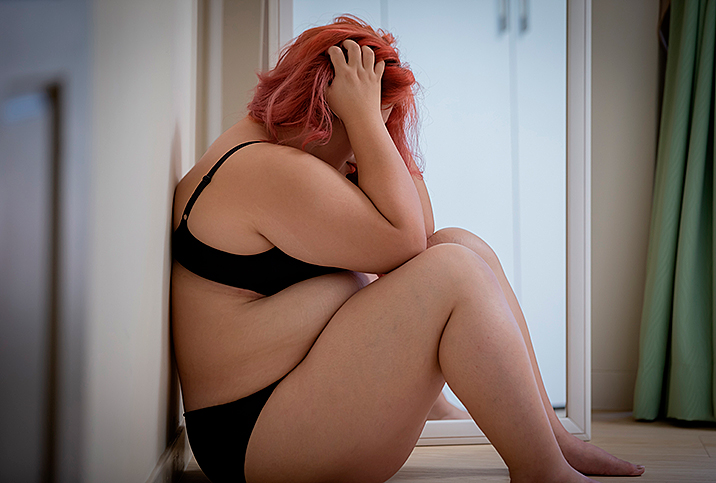Does Your State Offer Pharmacist-Prescribed Birth Control?

More than 100 countries around the world provide over-the-counter (OTC) birth control, meaning you don't need a prescription to purchase it. The United States is not one of them.
Although the American College of Obstetricians and Gynecologists (ACOG) fully endorses OTC contraceptives, they aren't available. However, in some states, you can skip the doctor's visit and access birth control with a pharmacist's prescription.
Unsurprisingly, ACOG notes barriers to access as a chief reason for nonuse or inconsistent use of contraceptives. A survey of 2,046 women ages 18 to 44 published in the Journal of Women's Health in 2016 found 68 percent of participants had tried to obtain a prescription for hormonal contraception, and of this group, 29 percent had problems accessing the initial prescription or refills.
According to Power to Decide, a Washington, D.C., organization that campaigns to prevent unplanned pregnancy, 23 states plus the District of Columbia have implemented, or are working to implement, policies to allow pharmacists to prescribe hormonal birth control, including the pill, patch, ring and shot.
What to know before enlisting pharmacy-prescribed contraception
Some states require pharmacists to receive training in contraceptive care, though this largely depends on individual state policy. Before a pharmacist dispenses birth control, depending on the state, they may issue a self-assessment quiz to the consumer to determine whether a specific kind of birth control is safe.
"Studies show that people can easily determine if birth control pills are right for them and can consult with a healthcare provider if they have any questions," said Victoria Nichols, M.P.H., Free the Pill project director at Ibis Reproductive Health, headquartered in Cambridge, Massachusetts. Free the Pill is an organization working to move birth control pills from prescription to over-the-counter status and ensure they're fully covered by insurance, priced affordably and available to people of all ages.
"There are a lot more contraindications for estrogen-containing methods than for progestin-only contraceptives," said Lisa Maldonado, M.A., M.P.H., co-founder and executive director of the Reproductive Health Access Project in New York City. "Most issues that might make contraceptives risky for an individual are things that can be identified with a conversation. The main exception is blood pressure, but that is pretty easy for people to check on their own."
When seeking a specific form of contraception, the most important steps to take are to rule out contraindications (conditions or symptoms that would make this medication risky for you), know how to use the method and know what to expect with the method, Maldonado explained.
Birth control methods are safe and some are up to 99 percent effective at preventing pregnancy when used correctly.
Does insurance cover it? Yes, no and it depends
Since the Affordable Care Act's passage in 2010, most health insurance plans are required to cover birth control at no out-of-pocket cost for the patient. Some states have amended or expanded their own requirements for contraceptive coverage. The federal mandate allows for 18 methods of birth control approved by the Food and Drug Administration.
Whether insurance covers birth control with a pharmacist's prescription depends on the individual state. Insurance companies are not always required to reimburse these services the way they do with a doctor's visit. Five states (Hawaii, New Hampshire, Oregon, Tennessee and West Virginia) explicitly include coverage for contraception that is prescribed and dispensed by a pharmacist, according to the Guttmacher Institute, a research organization for reproductive rights with offices in D.C. and New York City.
California requires Medicaid to pay for pharmacy-prescribed birth control and requires health benefit plans to cover services provided by a pharmacist. Many states call for health plan coverage if the services are within a health professional shortage area. Insurance might also cover only specific types of birth control, so for users of the service, it might be wise to find out these costs ahead of time by calling their insurance company, Maldonado said.
Due to new and ongoing policy changes, whether insurance will cover costs is pending in some states, as detailed by Power to Decide.
Federal law states that insurance covers birth control prescribed by a healthcare provider, which is an important caveat. Pharmacists do not have full provider status at the federal level, which could be why states don't require insurance to cover contraception if it's pharmacist-prescribed—even if insurance covers contraception.
Who do pharmacist-prescribed contraceptives help or hurt?
Women receiving contraception from a pharmacist are more likely to be younger, uninsured and have less education than women seeing clinicians, according to a 2020 study published in Obstetrics & Gynecology journal.
You might benefit from heading to the pharmacist if there are health provider shortages in your area or if you don't have insurance and want to avoid the steep cost of a doctor's visit or have time restraints.
Although pharmacists are allowed to prescribe birth control, they are not technically required—and just because they can, doesn't mean they do. In California, for example, only 11 percent of pharmacies dispensed birth control without a doctor's prescription as of 2017, according to a research letter published in the Journal of the American Medical Association (JAMA).
There are also age restrictions for people younger than 18 to access pharmacy-prescribed birth control, depending on the state. Teens face unique challenges accessing contraception. Access is an issue for younger teens and Black teens, according to a 2011 study published in the journal Contraception. The age 18 restriction, in this case, would leave many younger teens without access.
"These new models are only available in certain states, and telehealth models can be out of reach for people who have limited financial resources."
Pharmacists can charge an additional fee for counseling services, which is a requirement in some states to obtain a prescription. This is a burden for uninsured users who also have low income.
"The growth and popularity of online and pharmacist-prescribing models show people are eager to access their birth control in new ways, with fewer obstacles. However, these new models are only available in certain states, and telehealth models can be out of reach for people who have limited financial resources," Nichols said.
"Barriers to birth control and health care are deeply rooted in systemic racism and other forms of discrimination and oppression," Nichols added.
Barriers to obtaining a prescription can include the cost of a visit with a healthcare provider, lack of insurance coverage, time away from work or school, transportation and finding child care.
According to ACOG's recommendations, pharmacy access and online access may eliminate some barriers, but "full over-the-counter access to hormonal contraception could provide a more comprehensive solution to contraceptive access and is a reasonable goal from a larger public health viewpoint."
Free the Pill anticipates that in 2022 the FDA will review the first application in the country to make a birth control pill available over the counter.
"This presents a groundbreaking opportunity to expand contraceptive access to communities who face the greatest barriers to obtaining prescription birth control in this country, including people of color and Indigenous peoples, young people, and people working to make ends meet," Nichols said.


















